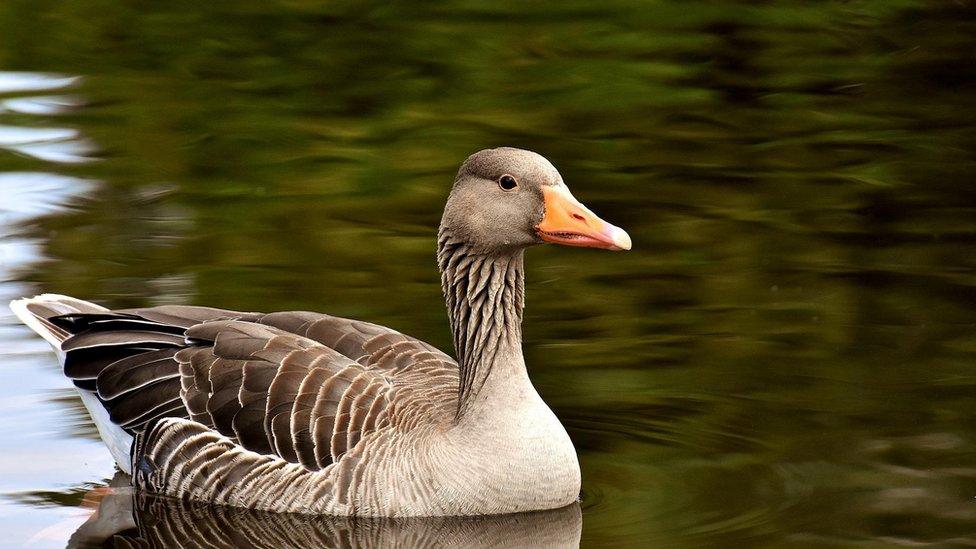More avian flu cases in Nottinghamshire wild birds
- Published

The Greylag Goose is thought to be one of the birds which can bring the disease into the UK
Avian flu has been found at two more locations in Nottinghamshire, it has been confirmed.
The seasonal disease was detected in wild birds at Vicar Water Country Park, Clipstone and near Car Dyke in Southwell.
Visitors have been told not to touch or feed the birds and dog owners have been advised to keep their pets on a lead.
The county council said that although the virus could be passed to humans, the risk was very low.
Vicar Water Country Park, near Clipstone, has a large pond which attracts migrating birds
The disease, which often spreads in the winter months, has led to large numbers of birds being kept indoors since December.
Wild birds migrating to the UK from mainland Europe can carry the virus and this can lead to cases in poultry and other captive birds.
The recent cases in Clipstone and Southwell come after the virus was found in birds in the grounds of Newstead Abbey.
Nottinghamshire County Council's Trading Standards team said it was working with Newark and Sherwood District Council and other partner agencies to reduce the risk of the spread of the disease.
It urged anyone in the area not to touch or pick up dead or sick birds.
John Cottee, chairman of the county council's communities committee, said: "The discovery of dead birds is always upsetting and the news that two have tested positive for avian flu will obviously be of concern to residents and visitors, however the risk of the disease transferring from birds to humans is considered to be very low.
"That said, it is important that people do not touch any sick or dead birds and I would also urge people not to feed any swans and geese, particularly around Vicar Water Country Park and Southwell, as feeding encourages them to congregate and that increases the risk of the disease spreading."
Anyone who finds dead swans, geese or other wild birds should report them to the Department for Environment, Food & Rural Affairs (Defra).
Follow BBC East Midlands on Facebook, external, Twitter, external, or Instagram, external. Send your story ideas to eastmidsnews@bbc.co.uk, external.
- Published21 March 2022
- Published5 March 2022
- Published21 January 2022
- Published6 January 2022